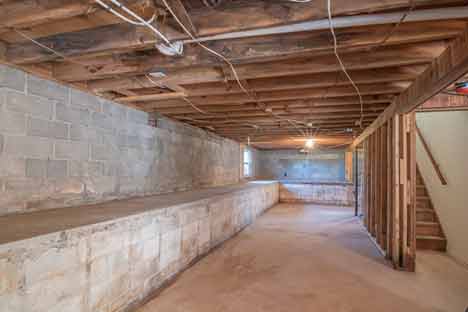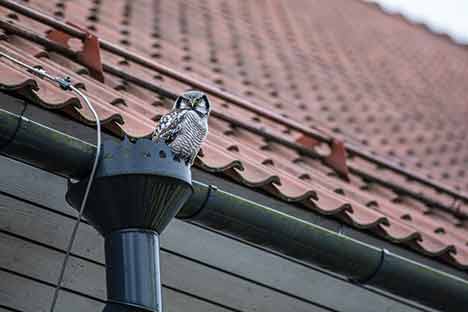
Basement floods are a serious problem, no matter how you look at it. A flood usually happens when groundwater finds the path of least resistance and makes its way inside. Extreme rains and flooding can happen at any time, and have been more frequent in the recent years. Sometimes it is impossible to keep the water out of your basement. For instance, floodwater can happen during hurricanes and similar weather conditions. This can cause a lot of property damage, and getting it resolved can be an expensive venture. Still, there are ways to stop flooded basements, which will save a lot in the long run. And in order to help you out, we have put together a list of 6 ways to stop basement flooding, which we hope helps you avoid having to deal with it entirely.
1. Install or service a sump pump
Sump pumps are wonderful devices and easily protect against a flooded basement. If you already have one installed in your basement, you might want to consider contacting plumbers who offer sump pump services and get it serviced, just to make sure it is in proper working order. A sump pump is installed in the basement, along with a sump pit to hold water. When incoming groundwater raises water levels excessively, for example, during heavy rain or due to melted snow, the sump pump will simply pump it all out. The water is pushed out of your basement through a drain pipe that empties outside, away from your foundation. Thanks to this, you can be certain that it will not make its way back into your basement. As such, sump pumps are one of the perfect ways to stop basement flooding, as long as you keep them in proper working order.

2. Check for signs of pipe damage
When a pipe in your plumbing gets damaged, it can be a bit difficult to spot. However, fixing pipe damage quickly is vital to protecting your home in general, not just your basement. As such, knowing how to spot pipe damage is incredibly important. In your basement, look for pools of water. A wet basement should always be a cause for concern, but pools of water gathering in spots is a pretty serious issue. If you feel a musty, acrid smell anywhere in your home, there might be a mold problem. Alternatively, if you actually see mold somewhere in your home, then you clearly have a problem. Mold is typically caused by a leak, so get your pipes fixed. Experts from amplemoving.com note that some people have had to move out of their homes because they ignored these signs. So, have your pipes checked out as soon as you spot something.
3. Install or service a backwater valve
The point of a backwater valve is to protect against sewer backups. Normally, wastewater flows in one direction: from your home to the sewer system. However, clogs and backups in the sewer system can cause all sorts of issues when they happen. Essentially, because the wastewater has nowhere to go, it is sent right back through the pipes and into your home. This can quite easily flood your basement unless you have a backwater valve installed in it. By having one in your basement, you do not have to worry about a flood or property damage due to sewer backups. Still, if you are worried about a sewer backup, you might want to consider contacting a local plumber who offers sewer cleaning services. After all, prevention is the best solution when it comes to plumbing problems. So, do not take any chances and also regularly service your backwater valve to keep it working well.

4. Check your water heater for damage
If you have your water heater in the basement, then you might want to check it for damage regularly. A leaking water heater is another common cause of flooded basements. As such, if you see any rust, small leaks, puddles, discolored water, or strange noises coming from the water heater, it is time to get it repaired immediately. Best case, a damaged water heater will flood your basement, and worst case, it will explode. If your primary concern is flooding, however, then you might want to consider renting out a storage unit to move the items in your basement into while the issue gets resolved. Knowing how to pack a storage unit is very important in this situation. So, be careful with how you pack if you want to have an organized space.
5. Clean your gutters regularly
When it comes to ways to stop basement flooding, keeping your downspouts and gutters clean is an excellent method. Gutters and downspouts are designed to collect rainwater or melted snow and redirect them away from your foundation. By doing this, they make sure this excess water does not find its way into your basement and flood it. Gutters should be cleaned at least 3 to 4 times a year, especially just before the spring thaw. Still, when looking for someone to do this, you should know how to find a reputable plumber near you.

6. Fix cracks in your foundation
Cracks in the foundation are the easiest way for water to get into your basement. In addition, foundation cracks make your home vulnerable to all sorts of water-related issues. Sources of water penetration such as backed-up yard drains, blocked gutters, groundwater, plumbing leaks, and so on can find their way in much more easily through foundation cracks. Fortunately, fixing cracks in your foundation is fairly easy, so long as they do not get too big. As such, it is very important to get the problem sorted out as soon as possible.
6 ways to stop basement flooding–wrap up
Basement flooding is a serious issue that can’t be ignored. As such, it is very important to know how to prevent it from happening in the first place. After all, preventing a basement flood in the first place is the best way to deal with it. We hope you found this list of 6 ways to stop basement flooding helpful, and we wish you a wonderful rest of your day.
